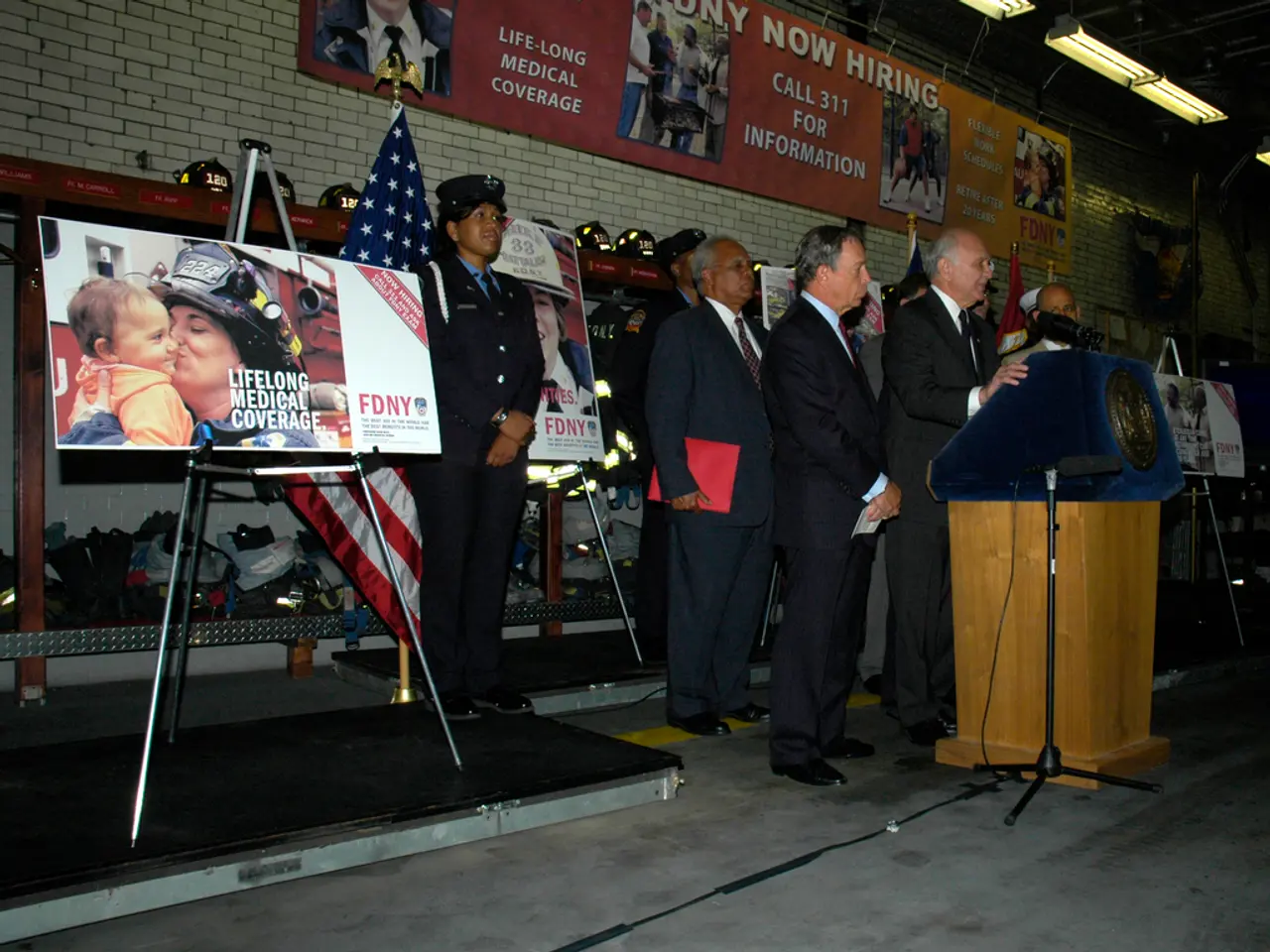One in four local councils faces potential bankruptcy, causing widespread concerns
Struggling Local Government Finances Pose Threat to Public Services in England
The Local Government Association's (LGA) Annual Conference, currently underway in Harrogate, is a gathering of over 1,500 councillors, council leaders, senior officers, and politicians, addressing the pressing issue of local government finances in England.
According to a recent LGA survey, an unprecedented 18 councils have received Exceptional Financial Support (EFS) from the government in February. This figure underscores the fragile state of local government finances, with councils grappling with ongoing pressure from inflation, rising demand, and an imperfect funding system that often fails to reflect true local needs, particularly in high-cost areas like London.
The LGA predicts that the trend of local authorities declaring bankruptcy could continue into 2026 if the government doesn't provide sufficient support. Two thirds of councils claim parks and green spaces will be affected, while social care for children and adults, homelessness, school transport, and sport services are also significant pressures.
The government has confirmed an additional £3.4 billion of grant funding for local government to be phased in progressively between 2026–27 and 2028–29. However, this funding may not be sufficient to offset growing cost and demand pressures immediately. Many councils will likely face continued pressure to raise council tax and implement further service cuts just to maintain current service levels, delaying or limiting service improvements.
Funding reforms (Fair Funding Review 2.0) aim to create a fairer, needs-based system, but concerns remain that important factors like housing costs and deprivation may still be underrepresented in funding formulas, risking underfunding of services in expensive urban areas such as London. Local government reorganizations underway also create short- and medium-term challenges, requiring careful balancing of current service delivery and financial decisions without compromising the future sustainability of new council structures.
Cllr Louise Gittins, the LGA's chairs, stated that councils are the backbone of communities and are struggling to protect vulnerable children and families, support the elderly, keep streets clean, and build affordable homes. She urged for financial stability to protect essential services in the Autumn Budget. The LGA is calling for a multi-year settlement and a review into changing the local government funding system.
The survey, published during the LGA's Annual Conference, reveals that one in ten local authorities have already discussed receiving emergency support with the Ministry of Housing, Communities and Local Government. Cllr Gittins also asserted that budget cuts needed to plug growing funding gaps will affect the most vulnerable members of society and the services communities rely on every day.
The cost-of-living crisis has led to an increase in the number of local authorities declaring bankruptcy. Homelessness is a pressure for 64% of councils, and the survey shows that social care for children (93%) and adults (90%) is one of the top pressures faced by councils. Sport services are affected for 62% of councils, and school transport is a pressure for 65% of councils.
The LGA warns that the EFS provided temporary financial relief but could overload 'already struggling councils with further debt and costs in the future'. The survey's findings highlight a worsening crisis due to a funding gap of more than £2bn next year. Cllr Gittins urges for financial stability to protect essential services in the Autumn Budget.
- The Local Government Association (LGA) urges for a review into changing the local government funding system, as concerns remain that housing costs and deprivation may still be underrepresented in funding formulas, potentially leading to underfunding of services in expensive urban areas like London.
- Struggling local government finances have led to many councils facing continued pressure to raise council tax and implement further service cuts just to maintain current service levels, delaying or limiting service improvements, such as building more affordable homes.
- The cost-of-living crisis has exacerbated the financial pressures faced by local government, with homelessness being a pressure for 64% of councils, and social care for children (93%) and adults (90%) being one of the top pressures faced by councils, which could affect essential services that communities rely on every day.




